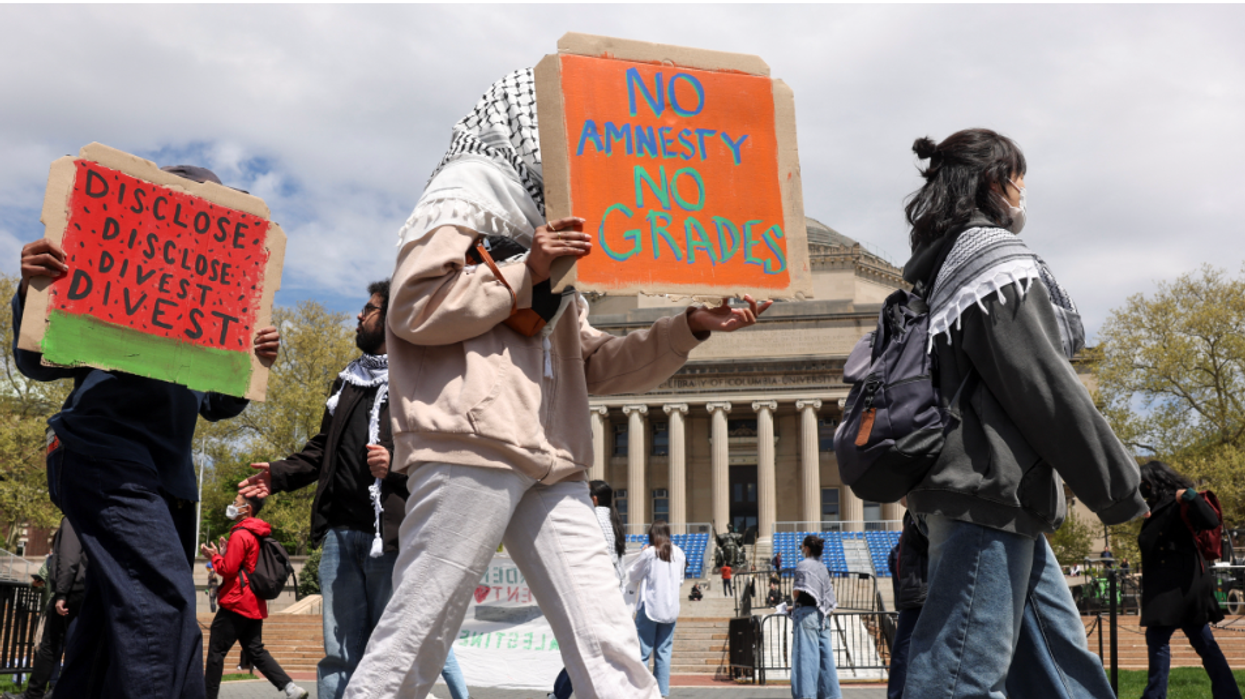When Moral Hygiene Becomes A Lethal Political Mistake
Historical analogies rarely carry much weight, especially in a time when so much about politics has changed so rapidly. To compare what is happening in 2024 to events that occurred over half a century earlier hardly seems useful.
It mostly isn't. And yet the election of 1968, whose outcome proved disastrous for America and the world, looms over the coming months like a foreboding specter.
Despite all the obvious differences in personalities, issues, technologies and ideologies, there is a haunting parallel between then and now in the increasingly fraught debate among Democrats and progressives over a divisive war — and the alienation of younger and minority voters from the party they would otherwise support.
By the spring of 1968, the movement against the Vietnam War had sparked a sense of furious frustration among young Americans who saw it causing tens of thousands of pointless deaths with no justification or end in sight. Massive antiwar protests swept across the nation's universities and colleges, sometimes resulting in conflict with authorities. Dissent within his own party had inspired not one but two insurgent candidacies against President Lyndon B. Johnson, who declared in late March that he wouldn't seek a second term.
The assassination of Sen. Robert F. Kennedy snuffed hopes for a fresh Democratic ticket. The nomination fell to Vice President Hubert H. Humphrey, Johnson's personally anointed successor, at the Democratic National Convention in Chicago. While the antiwar movement was generally peaceful and orderly, the student left had spawned a revolutionary wing whose leaders aimed for confrontation in the streets. The Windy City's conservative mayor, Richard J. Daley, was only too eager to answer them with billy clubs and tear gas.
Chaos and violence outside the convention, instigated by a rampaging police force, deepened the party's split and left millions of young voters vowing to support a third-party candidate or simply abstain.
Flash forward to the lawns and quadrangles of American academia today, where laudable protest over Israel's long, bloody incursion into Gaza is giving rise to a movement against the very existence of the Jewish state, marred by an undertone of antisemitism as well as anti-American ferocity. Leaders of this movement are poised to bring a rerun of 1968 to the streets of Chicago, which will again host the DNC this summer. They're vowing to shun President Joe Biden as retribution for his support of Israel in its war against the Hamas terrorists, who brutally murdered more than a thousand innocents last October 7.
Although I was too young to vote in 1968, I still recall my own passionate revulsion against the Vietnam War and how bitterly I argued with my father — an Army veteran who also opposed the war — over his determination to vote for Humphrey. The consequence of any alternative, he warned, would be the election of Richard M. Nixon, a perfidious character who could never be trusted with the presidency.
He was right and I was wrong, as history revealed all too starkly. Nixon lied about a phony "peace plan," won the election and rapidly escalated and expanded the war to a degree that could rightly be deemed genocidal. To win a second term, he embarked on a crime spree the nation had never seen in the White House — at least until the advent of former President Donald Trump. Nobody thinks Humphrey would have perpetrated those atrocities and felonies.
Whether or not one agrees with Biden on Israel versus Palestine — and I don't — he has done nothing that remotely approaches the criminal destruction of the U.S. war against Vietnam. Indeed, he has sought to mitigate the reckless and murderous approach of the Israeli government while recognizing its right to defend itself. Refusing to vote for him as "a message" is an act of purist vanity that could lead to consequences as dire as the Nixon victory. Rather than the "lesser of two evils," Biden is a good president coping with a world of difficult and sometimes terrible choices.
The alternative is Trump, a dictator in waiting who has already mounted a coup and openly aspires to locking up his adversaries. He is an exponent of extremism on every front, including the Middle East, where he can be expected to endorse the most vicious repression of Palestinians and may well lead us into war against Iran — a catastrophic error that Biden has successfully resisted. He is reasonably suspected of betraying the nation to hostile authoritarian powers. On every other issue, from abortion rights to climate change, his retrograde views are repugnant to young voters.
A democratic election is not an opportunity to display moral hygiene or an audition to join a cool club. This year, as always, voting will be an exercise of choices that are never perfect — but may just allow us to escape doom.
To find out more about Joe Conason and read features by other Creators Syndicate writers and cartoonists, visit the Creators Syndicate website at www.creators.com.












